Search This Blog
Friday, December 31, 2010
The Glass Key (1942)
A coarse and corrupt political boss (Brian Donlevy) falls in love with the daughter (Veronica Lake) of a wealthy politician (Moroni Olsen) and proceeds to woo the daughter and back the politician against the advice of his right hand henchman (Alan Ladd). When the politician's son (Richard Denning) turns up dead, Donlevy becomes the chief suspect. The second film version of the Dashiell Hammett novel (the first was filmed in 1935 with George Raft in Ladd's part) and sluggishly directed by Stuart Heisler. It clocks in at a brief 81 minutes but is seems like a full two hours. The political corruption is toned down from the original Hammett novel and the film plays out like a conventional film noir. Ladd is pretty good and his chemistry with the expressionless Lake remains solid but the acting honors, such as they are, belong to the roughly hewn Donlevy. With William Bendix as a sadistic thug, Dane Clark, Bonita Granville, Joseph Calleia, Frances Gifford, Donald MacBride and in a small but scene stealing part, Margaret Hayes (BLACKBOARD JUNGLE) as a nymphomaniac who seduces Ladd and drives her husband to suicide.
Thursday, December 30, 2010
Once You Kiss A Stranger (1969)
The Man With A Cloak (1951)
In the New York of 1848, a young girl (Leslie Caron) arrives from Paris in search of the uncle (Louis Calhern) of her fiance. She hopes the uncle will give her money which is needed by his nephew to support the revolution. What she finds is a debauched reprobate under the thumb of his mistress (Barbara Stanwyck) and two servants (Joe De Santis, Margaret Wycherly) who are waiting for him to die so they can inherit his fortune. But Caron finds an unlikely ally in her quest in a mysterious alcoholic poet (Joseph Cotten). Based on a short story The Gentleman From Paris by mystery writer John Dickson Carr and directed by Fletcher Markle (THE INCREDIBLE JOURNEY). The film is excessively talky for a Victorian thriller. The identity of Cotten's character is kept under wraps until the very end for a "twist" but even the most backward of children should be able to guess who he is. Cotten lacks the sodden depravity the role requires and the normally restrained Calhern overacts shamelessly here. There's a good underscore by the reliable David Raksin. With Jim Backus and Roy Roberts.
Wednesday, December 29, 2010
A Tiger Walks (1964)
The Sea Chase (1955)
Tuesday, December 28, 2010
Dr. Crippen (1962)
A meek doctor (Donald Pleasence) married to a virago of a wife (Coral Browne, AUNTIE MAME) with a voracious sexual appetite, falls in love with a pretty secretary (Samantha Eggar). The wife refuses to give him a divorce so he begins to contemplate murder. Directed by Robert Lynn, this is based on the true story of the murder case of Hawley Harvey Crippen (the wife's body was dismembered and buried in the cellar) who proclaimed his innocence to the end. The movie is a fairly straightforward telling of the case done through flashbacks during the murder trial. It's such a sensationalistic, morbid "true crime" tale that it can't help but hold your interest but as cinema, there's nothing exceptional about it. The film is quite sympathetic to Crippen. His wife is portrayed as an unbearable shrew that who wouldn't want to kill her? Pleasence is very good though it's never quite clear what the youthful and pretty Eggar sees in the middle aged fish eyed mild mannered Pleasence. The detailed B&W cinematography is by Nicholas Roeg who would soon go on to be a director of repute himself. With James Robertson Justice and the hammy Donald Wolfit.
Twelve Angry Men (1954)
Twelve jurors, all male, must decide the fate of a young boy, a product of the slums, accused of murdering his father ... beyond a reasonable doubt. This teleplay was quite popular winning three Emmys and turned into a film in 1957 directed by Sidney Lumet which has an inexplicable following. The plot is terribly contrived and each character is a stereotype: the loud mouthed racist, the immigrant praising the American way of justice, the dithery senior citizen, the nice young man who overcame his slum upbringing, the meek bank clerk, etc. They pontificate and squabble, each wearing their particular idiosyncrasy like a badge. Every thing is tied up at the end in a neat little ribbon which, I suppose, may account for its popularity. This live production, directed by Franklin Schaffner, has a few assets over the 1957 film. At one hour, it's mercifully 36 minutes shorter than the insufferable Lumet film, Franchot Tone doesn't chew up the scenery the way Lee J. Cobb does and while Robert Cummings is as bad as Henry Fonda was, it's in a different way. He seems to confuse making faces and twitching with acting (poor Cummings never did get the hang of it) while Fonda was a pillar of inertia. With Edward Arnold, Norman Fell, Lee Philips, Walter Abel and George Voskovec and Joseph Sweeney who were the only actors to repeat their roles in the 1957 film.
Monday, December 27, 2010
Fort Dobbs (1958)
Midnight Mary (1933)
While awaiting the verdict in her murder trial, a woman (Loretta Young) reflects back on her life, from her days as a nine year old orphan, jailed for a crime she never committed, the mistress of a mobster (Ricardo Cortez), the millionaire (Franchot Tone) who became the love of her life and eventually to the events that lead to the killing. William Wellman directs this pre-code melodrama so it's quite adult in its themes and frank in its depiction of sex. Wellman's technique has almost always been to let the story take front and center and it's no different here. He allows the narrative to swiftly move along with the actors adroitly slipping into their characters. If the ending comes across as sentimental and unrealistic, it can be forgiven since the journey has been fulfilling. With Una Merkel and Andy Devine at his most annoying.
Sunday, December 26, 2010
Black Narcissus (1947)
A group of English nuns are sent to a remote deteriorating palace, which was formerly the home of the Rajah's concubines high in the Himalayan mountains in an attempt to educate the local populace especially its children. But the exotic and sensual atmosphere with its winds and native drums causes the nuns to breakdown emotionally, psychologically and sexually until its violent climax. Based on the novel by Rumer Godden and adapted for the screen and directed by Michael Powell and Emeric Pressburger. This remarkable film is Powell and Pressburger's masterpiece. Stunningly photographed in rich, velvety, three strip Technicolor by ace cinematographer Jack Cardiff whose visuals won the 1947 Oscar and superb art direction (it was filmed entirely in England though you'd never know it) by Alfred Junge who also won the 1947 Oscar in his category. Its lushness and sensuality never overpowers its intense psychical eye. In one of her best performances Deborah Kerr is the sister superior who desperately strains to keep her wits about her as everything is falling apart. In an unforgettable performance that knocks it out of the ballpark, Kathleen Byron is the fragile Sister Ruth pushed beyond all endurance to insanity. With David Farrar as the studly British agent who unintentionally contributes to the hysteria that develops in the nunnery. With Jean Simmons, Sabu, Flora Robson, Edmond Knight, Judith Furse and a scene stealing May Hallatt.
Drag Me To Hell (2009)
Wednesday, December 22, 2010
That Forsyte Woman (1949)
Rise Of Catherine The Great (1934)
Tuesday, December 21, 2010
The Swan (1956)
Set in 1910 in a country described as in "middle Europe", a princess (Jessie Royce Landis) who is ambitious for her daughter (Grace Kelly) to marry a distant cousin (Alec Guinness) who is the heir to the throne attempts to parlay his visit into a marriage proposal. When Guinness appears indifferent, Landis suggests to her daughter to use a tutor (Louis Jourdan) to arouse some jealousy from him. But no one is prepared for what happens. Directed by Charles Vidor (GILDA) and based on the 1914 play by Ferenc Molnar (previously filmed in 1930 with Lillian Gish in Kelly's role), THE SWAN only really comes alive in its second half, not coincidentally it's when its protagonists come alive, too. Visually, the film is a sumptuous treat. Both elegant eye candy and handsomely composed for the CinemaScope screen. Kelly seems born to the part of the icy princess but there's wonderful work from the supporting cast particularly Landis as the anxious snobby mother, Agnes Moorehead as the no nonsense dowager Queen and Estelle Winwood as a ditzy aunt. With Brian Aherne, Leo G. Carroll, Robert Coote and Van Dyke Parks (yes, that Van Dyke Parks) as Kelly's younger brother. The lovely score is by Bronislau Kaper. Since Kelly was shortly to become a real life princess, MGM held up the release to coincide with Kelly's marriage to Prince Rainier of Monaco.
The Best Man (1964)
Monday, December 20, 2010
Susan Slept Here (1954)
On Christmas Eve, a couple of policeman (Horace McMahon, Herb Vigran) bring a 17 year old juvenile delinquent (Debbie Reynolds) to the posh apartment of an Oscar winning screenwriter (Dick Powell), ostensibly to keep her out of jail during Christmas, under the pretext of Powell doing research on juvenile delinquents for a new movie. Directed by Frank Tashlin (THE GIRL CAN'T HELP IT), the film is actually a rather pleasing well written comedy if you can get past the unsavory notion of a 40ish Hollywood bachelor hooking up romantically with an underage teenage girl. Most of the laughs come courtesy of Glenda Farrell as Powell's wise cracking boozy secretary (what a pleasure to see somebody else beside Thelma "here comes another wisecrack" Ritter get a crack at these parts). Tashlin's visual comedic sense keeps the talky screenplay lively so that its theatrical origins aren't too apparent. With Red Skelton, Anne Francis as Powell's Pasadena wealthy, bitchy fiancee, Alvy Moore as his best pal, Rita Johnson, Les Tremayne, Ellen Corby and Maidie Norman.
Three Men In A Boat (1956)
Sunday, December 19, 2010
拳銃 は 俺 の パスポート (aka A Colt Is My Passport) (1967)
A professional hit man (the chipmunk faced Joe Shishido) and his less experienced sidekick (Jerry Fujio) find themselves betrayed by the very mobsters that hired Shishido to assassinate the head of a rival gang when the son of the slain man agrees to a uniting of both gangs under the condition that the man who killed his father is himself killed. Based on the novel TOBOSHA by Shinji Fujihara and directed by Takashi Nomura. This compact action film is most often referred to as Japanese noir but it seems more like a western transposed to contemporary Japan. For example, Harumi Ibe's terrific score cleverly incorporates jazz along with a homage to the spaghetti western scores of Ennio Morricone and Bruno Nicolai and the final gunfight is set up like a showdown at the O.K. corral. The film's finale is something of a washout, not the least because the bad guys couldn't hit a target if it were right in front of their nose. Still, up to then, it's very well done and Shigeyoshi Mine's crisp B&W wide screen images are impressive. With the sad eyed Chitose Kobayoshi as the unlucky barmaid who falls for Shishido.
A Christmas Romance (1994)
Saturday, December 18, 2010
True Grit (2010)
Plymouth Adventure (1952)
The Beloved Rogue (1927)
Francois Villon (John Barrymore), the most beloved poet in 15th century France, is also both a notorious womanizer, lover of fine wine and a patriot. When the weak King Louis XI (Conrad Veidt, CASABLANCA) allows the Duke of Burgundy (W. Lawson Butt) to take the King's beautiful ward Charlotte (Marceline Day) for his bride against her will (and also nearer to the throne of France), Villon attempts to save France from the ambitious Duke's plans for taking the throne while romancing Charlotte himself. Directed by Alan Crosland, Barrymore (previously directed by Crosland in DON JUAN) is wonderfully charming here in this entertaining swashbuckler. Since he lacks the physical grace of Douglas Fairbanks, the swashbuckler of the silent era, Barrymore wisely concentrates on his comedic skills and roguish charms rather than duels though he does his share of jumping off parapets and leaping off roofs. Veidt's impersonation of Louis XI is a bit odd. He looks like he's auditioning for RICHARD III! With Slim Summerville, Angelo Rossitto and Henry Victor.
Friday, December 17, 2010
Bloodline (1979)
Thursday, December 16, 2010
The Pink Panther (1964)
A gentleman thief (David Niven) known as "The Phantom" has committed a series of incredible robberies for years while the bumbling Inspector Clouseau (Peter Sellers) has been unable to capture and unmask him. Little does Clouseau know that his wife (Capucine) is The Phantom's mistress. Meanwhile, The Phantom sets his eyes on the fabulous "Pink Panther" diamond owned by a Middle Eastern princess (Claudia Cardinale). The passing of the great Blake Edwards today had me seeking out his classic stylish and sparkling farce. It's filled to the brim with clever sight gags and witty puns anchored by an inspired comedic tour de force by Peter Sellers. Niven does this sort of thing effortlessly but who knew Capucine's forte was deadpan comedy? It's difficult to choose the film's comedic highlight since there are so many of them but surely the Feydeau-ish bedroom set-piece with doors slamming, hiding under beds etc. remains an example of perfect farce. Capucine and Cardinale are elegantly dressed by Yves St. Laurent while Henry Mancini's score is both amusing, romantic and melodic. The snowy Italian landscapes have never looked so inviting. With Robert Wagner, Brenda De Banzie and Fran Jeffries.
Hotel (1967)
Wednesday, December 15, 2010
I Met Him In Paris (1937)
Tuesday, December 14, 2010
The Deadly Companions (1961)
A saloon dance hall girl (Maureen O'Hara) who is looked down upon by the townspeople is determined to make the dangerous trek through Apache territory to bury her son next to her husband (the town believed she was an unwed mother) in the deserted town where he's buried. She's accompanied, unwillingly, by the man (Brian Keith) who accidentally killed her son and two unsavory bank robbers (Steve Cochran, Chill Wills). Based on the novel by A.S. Fleischman (he also wrote the screenplay) and directed by Sam Peckinpah. The first feature film by the great Peckinpah, this bleak western still hasn't received its due. Peckinpah wasn't fond of it much because he had no control over the final product and while it's no where near his best work like THE WILD BUNCH or STRAW DOGS, it's a modest but strong, effective western. With only four major characters in the film, the emphasis is on character as they pass through the bleak Arizona landscape with distrust their only companion. It's a pretty stripped down western, even the guitar and accordion score by Marlin Skiles is sparse and the unsentimental Peckinpah minimizes the romantic elements, such as they are. The cinematographer William Clothier (MAN WHO SHOT LIBERTY VALANCE) makes excellent use of the Panavision wide screen. If you've seen this film only in pan and scan, you haven't seen it. With Strother Martin.
Eye Of The Devil (1966)
Monday, December 13, 2010
The River Wild (1994)
A Boston family (Meryl Streep, David Strathairn, Joseph Mazzello) on vacation in Idaho are whitewater rafting when they encounter two strangers (Kevin Bacon, John C. Reilly) in need of help. What they don't know is that the strangers are bank robbers, who have also killed a bank guard, escaping down the river which is both treacherous and lethal. Meryl Streep, action heroine? Believe it! Directed by Curtis Hanson (L.A. CONFIDENTIAL), even though she did her own stunts, Streep doesn't overdo the heroics but rather cuts a more believable thinking action heroine rather than the kick ass variety. It's nothing particularly original but Hanson keeps the action tight and the river rafting sequences are genuinely exciting and exhausting. There's a thrilling Jerry Goldsmith score that accentuates the nervous tension. With Benjamin Bratt and a scene stealing dog called Maggie (played by Buffy). Montana stands in for Idaho.
Sunday, December 12, 2010
Bundle Of Joy (1956)
A young, unmarried salesgirl (Debbie Reynolds) at an upscale department store finds an abandoned infant on a doorstep. Despite her protestations, everyone assumes she is the mother which causes a series of misunderstandings. Directed by Oscar winning director Norman Taurog (SKIPPY), this is a remake of the 1939 Ginger Rogers screwball comedy BACHELOR MOTHER but this time as a musical. It worked perfectly well before as a straight comedy and the sub par songs here are not only unnecessary but drag the movie down. The film is also saddled with that lumpen presence known as Eddie Fisher as its leading man. The only time I laughed was at a brief scene where Fisher's father's (Adolphe Menjou) butler (Melville Cooper) kept replacing his spoon. I'm not sure if I laughed because it was genuinely funny or out of desperation. Still, everybody (as if compensating for Fisher's inability) pushes hard. With Tommy Noonan, Una Merkel and Nita Talbot.
Les Grandes Manoeuvres (1955)
Set in a small military town in France in 1914, a dashing, young cavalry officer (Gerard Philipe) who is known for his seductive powers over women makes a wager that he can seduce any woman in town. He picks her out by chance and the woman turns out to be a newly arrived divorcee (Michele Morgan) from Paris, anxious to protect her reputation. What begins as a lark turns into something quite different that will cause heartbreak to both individuals. Directed by Rene Clair. When one thinks of Clair, it's most likely one of his delightful and witty farces like AN ITALIAN STRAW HAT or LE MILLION but he's venturing into Max Ophuls territory here. LES GRANDES MANOEUVRES has more in common with Ophuls' EARRINGS OF MADAME DE ... and LETTER FROM AN UNKNOWN WOMAN than Clair's farces. Its mixture of romantic farce and bittersweet romance is somewhat unsettling and often alienates its audience. Visually, it's one of the most gorgeous films I've seen thanks to Robert Lefebvre's cinematography, Leon Barsacq's and Maurice Barnathan's sumptuous art direction and Rosine Delamare's exquisite costumes. The film looks like it was shot in a pastel colored candy box! With Brigitte Bardot, Magali Noel and Jean Desailly.
A Christmas Memory (1997)
In the 1930s South, a lonely young boy (Eric Lloyd) sent to live with relatives by his mother, bonds with his elderly cousin (Patty Duke) who has an annual Christmas ritual of making fruitcakes for friends and public figures (Franklin Roosevelt, Jean Harlow) they admire. The film focuses on their last Christmas together before he is sent to military school against his wishes. Based on Truman Capote's short story and directed by Glenn Jordan (ONLY WHEN I LAUGH), this is a lovely rendition of Capote's memories and his affectionate valentine to the elderly woman who loved him and was his friend. Particularly notable is the underrated Duke's wonderful performance which only calls attention to how Hollywood wasted her talents. A perfect movie for the seasonal Holiday viewing which eschews the usual sentimentality of such fare as IT'S A WONDERFUL LIFE or MIRACLE ON 34TH STREET. With Piper Laurie, Anita Gillette, Jeffrey DeMunn and Esther Scott.
Saturday, December 11, 2010
Rabbit Hole (2010)
The Awakening (1980)
Thursday, December 9, 2010
Boys' Night Out (1962)
List Of Adrian Messenger (1963)
A series of apparently random accidents over several years are actually planned murders. A retired British intelligence agent (George C. Scott) begins to investigate the killings after given a list by Adrian Messenger (John Merivale) of the victims but, alas, Messenger himself becomes a victim. This B&W mystery shot in Ireland finds John Huston in a playful mood, apparently enjoying himself dipping into Agatha Christie territory. The film is burdened by an annoying gimmick however. Several well known actors are heavily disguised through out the film and part of the supposed fun is for the audience to decipher who they are playing. The film is a cheat in this regard however. While some actors (Kirk Douglas and Robert Mitchum, for example) are instantly recognizable even under the heavy make up others have their voice dubbed (like Frank Sinatra) to throw us off the scent and some (like Burt Lancaster) obviously didn't play the character they're credited with. But, Scott's lousy English accent aside, the other actors do quite well and the mystery is quite clever and there's a spirited Jerry Goldsmith score. The large cast includes Tony Curtis, Dana Wynter, Herbert Marshall, Gladys Cooper, Clive Brook, Marcel Dalio and the unappealing dullard, Jacques Roux.
Wednesday, December 8, 2010
The Green Slime (1968)
When an asteroid is headed on a collusion course with Earth, a team of astronauts is sent on a mission to detonate explosions on the asteroid which would break it up before it has a chance to reach Earth. However, a piece of green slime from the asteroid attaches itself to one of the astronauts and when they return to the space station, the slime multiplies into living murderous creatures. Made in Japan and directed by Kinji Fukasaku (who co-directed the Japanese sequences in TORA TORA TORA) with American actors but Japanese personnel behind the camera, this is a marvelously cheesy creature feature with tacky special effects and miniatures that are almost adorable in their cheesiness. The "green slime" creatures look like avocados with tentacles and there's a hilarious title song (sample lyrics: "Is it something in your head, will you believe it when you're dead, green slime, green slime, green slime"). The square jawed hero is Robert Horton, luscious Luciana Paluzzi is the space station doctor and Richard Jaeckel is the incompetent commander of the space station.
In Love And War (1958)
Tuesday, December 7, 2010
The Opposite Sex (1956)
On Her Majesty's Secret Service (1969)
Determined to get the head of SPECTRE, Ernst Blofeld (Telly Savalas), James Bond (George Lazenby) enlists the aid of a mafioso head (Gabriele Ferzetti, L'AVVENTURA) while also romancing his daughter (Diana Rigg). He goes undercover as a genealogist to Blofeld's hideaway in the Swiss alps. This most elegant of all the Bond films is a benchmark in the series as far as quality goes, not surprisingly it is also the most faithful adaptation of the Ian Fleming novels. If Sean Connery had played Bond instead of Lazenby, it would have the greatest of the Bond films. The much maligned Lazenby is adequate but he lacks the screen presence, not to mention the acting chops, of Connery. Directed by Peter Hunt, who was the editor on the previous Bond films, he keeps a firm rein on the storyline despite the two hour plus running time. The ski and bobsled chases are spectacular, among the best of their kind and Rigg brings a strength, intelligence and a strong actress's skills that elevates her above the typical "Bond girl". John Barry's score is simply stunning. The large cast includes Bernard Lee, Lois Maxwell, George Baker, Angela Scoular, Joanna Lumley, Catherine Schell, Desmond Llewelyn and Ilse Steppat who almost steals the film as Blofeld's butch henchwoman.
Monday, December 6, 2010
Quicksand (1950)
An auto mechanic (Mickey Rooney) falls for a gold digging, hard as nails blonde (Jeanne Cagney, James's sister). In order to get the money to keep her, he begins descending into a life of petty crime at first then theft and murder. It's interesting to see Rooney play against his Andy Hardy image but his character is unlikable. He's cocky and treats the decent girl (Barbara Bates, ALL ABOUT EVE) who loves him like dirt (though her acceptance of his walking all over her as she keeps coming back more eventually becomes a turn off) and it's obvious the blonde is taking him for a ride. In fact, the gold digger is smarter than anyone else in the movie and without anyone else to latch on to, I actually began rooting for her. The deus ex machina finale is practically insulting to the audience what with the friendly lawyer who, despite being kidnapped at gunpoint, is more than willing to help them out. The direction by Irving Pichel (DESTINATION MOON) is efficient but there's not much he can do with the lame script. With Peter Lorre and Minerva Urecal.
Sunday, December 5, 2010
Tough Guys (1986)
After 30 years in prison for robbing a train in the 1950s, two gangsters (Burt Lancaster, Kirk Douglas) now find themselves elderly men in the new world of the 1980s where they don't fit in. Lancaster feels confined by the rules and over regulation of the retirement home he's been sent to and Douglas tries to recapture his youth by going out with a hot, young gym instructor (Darlanne Fluegel) to discos and rock clubs but her sexual energy drains him. Directed by Jeff Kanew (REVENGE OF THE NERDS), the film attempts to find humor in the cliched and stereotypical treatment of senior citizens, almost to the point of offensiveness. Still, it's wonderful to see Lancaster and Douglas in their last spurt of bravura, playing off their old screen personas, as both would shortly be severely affected by strokes in the following years. These guys weren't Stars for nothing. The highlight of the film is a hilarious Eli Wallach as an incompetent near sighted hit man. The movie has one of those tiresome and annoying 80s synthesizer/drum machine score scores but there is a lovely ballad over the main credits by Burt Bacharach and sung by Kenny Rogers. With Alexis Smith, Charles Durning, Dana Carvey, Billy Barty and the Red Hot Chili Peppers.
The Tempest (2010)
The Blue Dahlia (1946)
When a navy officer (Alan Ladd) returns home after the war with his two buddies (William Bendix, Hugh Beaumont), he finds his wife (Doris Dowling, LOST WEEKEND) has turned into an unfaithful, high living party girl during his absence. When she is found murdered, he becomes the key suspect. Directed by George Marshall and with an original Oscar nominated screenplay by the great Raymond Chandler, one wishes BLUE DAHLIA could have been stronger than it is. As it stands, it's an enjoyable mystery but there's nothing remotely special about it. The most interesting aspect of the film are the portrayal of the shell shocked war veteran played by Bendix who has an hysterical aversion to jazz music (he calls it "monkey music", perhaps it's best not to think about that too hard) and the disdainful adulterous wife played by Dowling. Ladd has a nice chemistry with his frequent leading lady Veronica Lake (lovely but low-keyed to the point of ennui) and I suppose I should be grateful for what we get but the pedigree suggests there should be so much more. With Howard Da Silva, Frank Faylen and Will Wright in a nice turn as a slimy house detective.
Saturday, December 4, 2010
Peking Blonde (aka La Blonde De Pekin) (1967)
After a beautiful blonde (Mireille Darc, Godard's WEEK END) with connections to a Red Chinese political figure is found with amnesia, the CIA, in the form of Edward G. Robinson, hires an actor (Claudio Brook, Bunuel's EXTERMINATING ANGEL) to impersonate her husband in the hopes he can obtain information that would prove useful to the West. This cheesy, lazy cold war thriller lacks any credibility even if taken as a spoof. It attempts to be breezy when it's actually sloppy to the point of amateurism. The CIA are hideously incompetent resulting in the deaths of several innocent people including the lovely Giorgia Moll (Godard's CONTEMPT) who is killed off far too early. Directed by Nicolas Gessner, probably best known for LITTLE GIRL WHO LIVES DOWN THE LANE and based on a novel by James Hadley Chase (NO ORCHIDS FOR MISS BLANDISH).
Tight Spot (1955)
Black Swan (2010)
A reserved, inhibited ballerina (Natalie Portman), still living at home and treated as a little girl by her ex-ballerina mother (Barbara Hershey), finds herself thrust into the spotlight when cast as The Swan Queen in Tchaikovsky's SWAN LAKE. But she finds herself not only pushed beyond endurance by the choreographer (Vincent Cassel) but under the watchful eyes of a ballerina (Winona Ryder) on her way down and a ballerina (Mila Kunis) on her way up. This is one freaky movie and I loved every minute of it. It's as if THE RED SHOES had a one night stand with Polanski's REPULSION and this was the bastard child they produced with David Lynch acting as midwife! This is the career defining role that Portman has been waiting for and she attacks the part like a carnivore after a vegetarian diet. Darren Aronofsky, who showed us the grueling and cruel world of wrestling in THE WRESTLER, now shows us the graphic intensity of the ballet artist. There are several moments not for the squeamish, THE TURNING POINT it ain't. I had to look at my lap during all the moments of cutting, open sores, stabbing and self mutilation! I'm not sure mainstream audiences will accept what Aronofsky has given us but it's a hell of a ride as well as a portrait of an artist's descent into perfection to the point of insanity.
No Regrets For Our Youth (aka Waga Seishun Ni Kuinashi) (1946)
Covering the years 1933 when radical student activists protest Japan's invasion of Manchuria though the end of WWII in 1945, the film follows the lives of three protagonists. A rather immature self centered girl (Setsuko Hara) and her two leftist student suitors (Susumu Fujita, Akitake Kono) whose three lives will change dramatically in the course of the story. This was the first film by Akira Kurosawa after the end of the war. Viewing the film, I couldn't help but see the parallels of America during the 1960s and student protest against the Vietnamese war. Kurosawa succeeds admirably during the first two thirds of the film presenting the complexities of changing allegiances (for better or worse) either by necessity or choice as these three mature. It's unfortunate that the last third, when Hara comes to live with Fujita's family, that the film becomes not only utterly conventional but proselytizes too. Still, there are some marvelous visual flourishes that indicate how Kurosawa would bloom in the 1950s. With the wonderful Haruko Sugimura, almost unrecognizable, playing the Fujita's elderly mother at the age of 37.
Wednesday, December 1, 2010
Ordeal By Innocence (1985)
Caesar And Claretta (1975)
Fleeing toward the Swiss border as the Allies make their way to Rome, the fascist dictator Benito Mussolini (Robert Hardy) and his mistress (Helen Mirren) are captured and spend their last night together in a small peasant cottage where they ruminate on their lives and their fate as well as their place in history. Based on a short play by Jack Russell (whose title is an amusing play on Shaw's CAESAR AND CLEOPATRA), it's an ambiguous piece as we're never quite sure what Russell's take on Mussolini is. It's extremely difficult, if not impossible, to conjure up much sympathy for Il Duce as he prattles on about what a visionary he is and how he's misunderstood. Is Russell showing us the delusions of a notorious despot or is he actually trying to show what a poor tortured soul he was? It doesn't help that Hardy as Mussolini overacts pitifully though, to be fair, the script encourages such ham. The young Mirren looks quite striking as a brunette and the most honest moment in the film amongst Russell's blathering is when Hardy asks Mirren to see her breasts.
Subscribe to:
Posts (Atom)



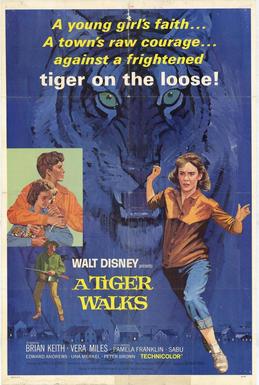



.JPG)

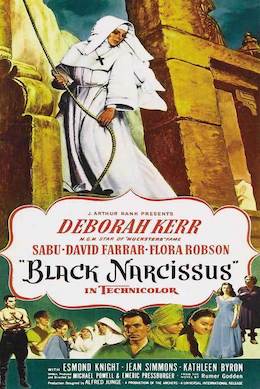
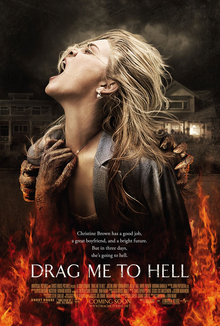


.JPG)



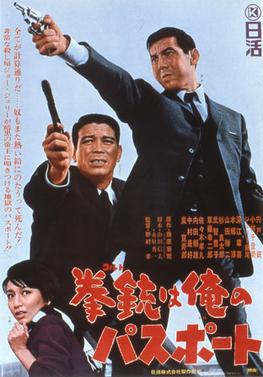

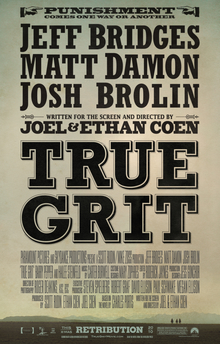

.JPG)





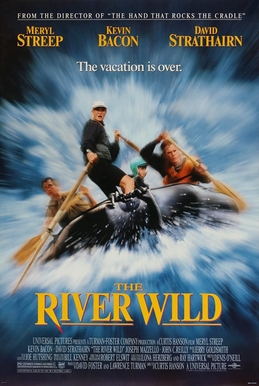
.JPG)




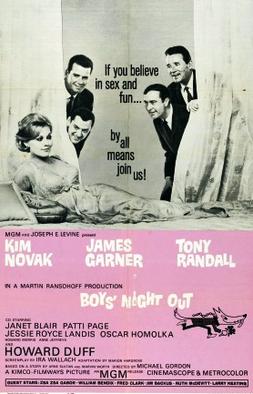



.JPG)
.JPG)






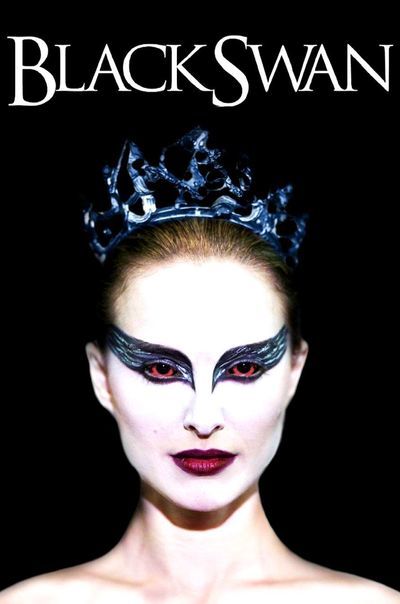


.jpg)